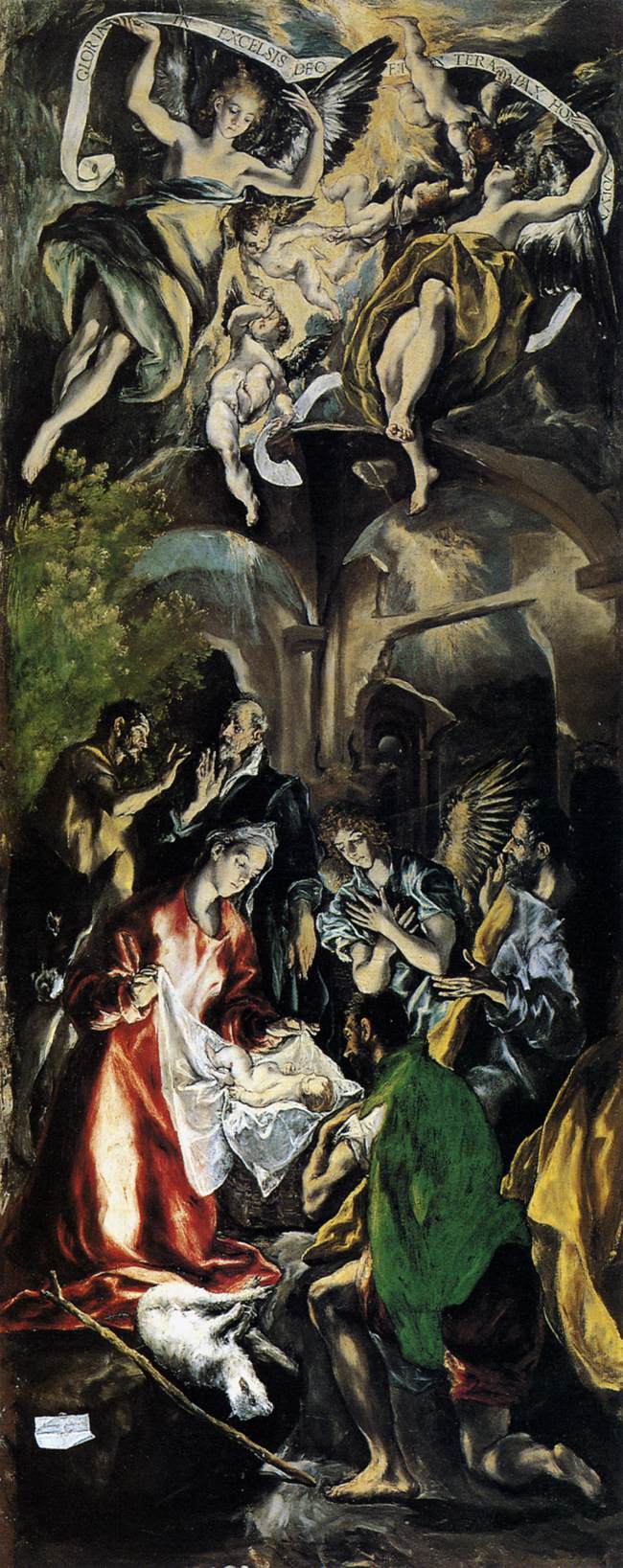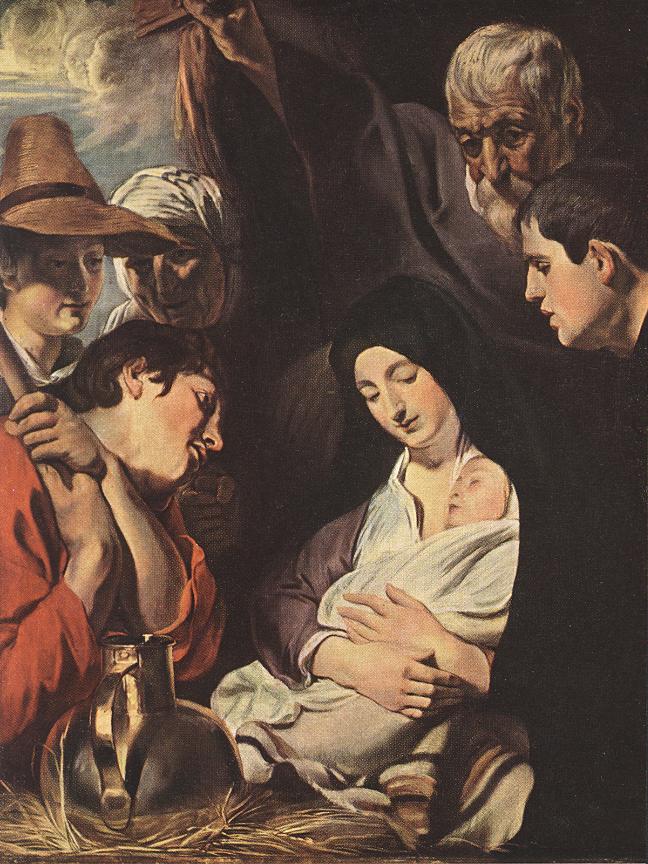The Virgin Mary, El Greco, painted 1594-1604 (Web Gallery of Art)
Second reading from the Mass of the Solemnity, Mary Mother of God (Galatians 4:4-7, RSV Catholic Edition)
But when the time had fully come, God sent forth his Son, born of woman, born under the law, to redeem those who were under the law, so that we might receive adoption as sons. And because you are sons, God has sent the Spirit of his Son into our hearts, crying, "Abba! Father!" So through God you are no longer a slave but a son, and if a son then an heir.
Introit
Salve, sancta Parens, eníxa puérpera Regem, qui caelum terrámque regit in saecula saeculórum.
Entrance Antiphon
Hail, Holy Mother, who gave birth to the King,
who rules heaven and earth for ever.
The recording by the Benedictines of the Abbey of Solesmes, France, is of the fuller version used in the Extraordinary Form of the Mass, the 'Traditional Latin Mass', which includes the Gloria Patri and repeats the antiphon.)
The Church also observes New Year's Day as World Day of Peace, though not liturgically. the theme of Pope Benedict's message for World Day of Peace, 1 January 2013, is Blessed are the Peacemakers. Two paragraphs are of particular relevance in the context of proposed legislation in a number of countries, including the Republic of Ireland and the United Kingdom, and of recent legislation approved in the Philippines. And our focus during the seasons of Advent and Christmas is on the Birth of a Child.
Those who insufficiently value human life and, in consequence, support among other things the liberalization of abortion, perhaps do not realize that in this way they are proposing the pursuit of a false peace. The flight from responsibility, which degrades human persons, and even more so the killing of a defenceless and innocent being, will never be able to produce happiness or peace. Indeed how could one claim to bring about peace, the integral development of peoples or even the protection of the environment without defending the life of those who are weakest, beginning with the unborn. Every offence against life, especially at its beginning, inevitably causes irreparable damage to development, peace and the environment. Neither is it just to introduce surreptitiously into legislation false rights or freedoms which, on the basis of a reductive and relativistic view of human beings and the clever use of ambiguous expressions aimed at promoting a supposed right to abortion and euthanasia, pose a threat to the fundamental right to life.
There is also a need to acknowledge and promote the natural structure of marriage as the union of a man and a woman in the face of attempts to make it juridically equivalent to radically different types of union; such attempts actually harm and help to destabilize marriage, obscuring its specific nature and its indispensable role in society.
I used the video above recently. It's message is not only the powerful words of the Beatitudes given us by Jesus but the dignity of those who proclaim them here. Some say, in all sincerity, that if it is known before birth that a child has a disability, especially a mental one, better that that child not be born. They are really saying that the persons in this video, whose names appear at the end, were not worthy of being born, or would have been spared a life of suffering had they been aborted. Pope Benedict is speaking to those who see things in this way.
I have a close friend whose first child, a son, was born with severe mental and physical disabilities, due to something that happened during the birth. She told me that it has taken her nearly five years to accept this reality. But there is no way that she and her husband regret the birth of their son, whom they have loved to bits from the moment of his birth, indeed from the moment they knew their first child was on his way. And their daughter, now four, loves her older brother to bits in the same way.
How often persons who are pro-life in word and in deed are taunted or dismissed as caring only for the lives of the unborn. My friends are taking care of their son, with professional help, 24/7. There are countless others caring with all their hearts for those in need.
Pope Benedict's words are a message of hope to the many who lovingly care for persons with special needs at whatever stage of life and he is telling them that they are truly peacemakers. He is also quietly challenging those who see things differently.
A Happy New Year!



















